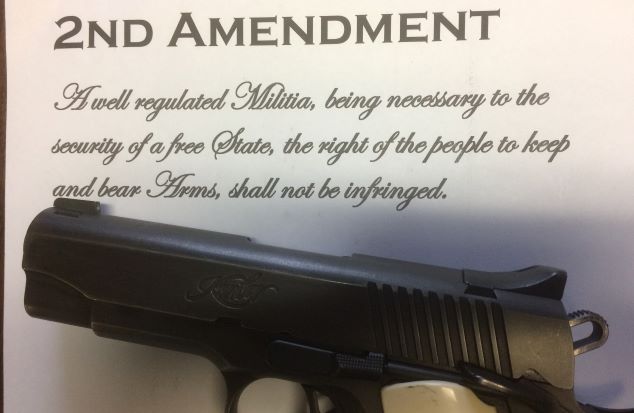
By Dave Workman
Editor-in-Chief
A three-judge panel of the Fourth U.S. Circuit Court of Appeals has ruled in a 2-1 split that Maryland’s requirement to obtain a “handgun qualification license” which includes taking a four-hour “safety” course is unconstitutional.
The ruling may be read here.
According to the Tampa Free Press, the mandate involves waiting for up to 30 days before a citizen can exercise his or her rights under the Second Amendment.
Writing for the court, Judge Julius Richardson, a Donald Trump appointee, observed, “But even though Maryland’s law does not prohibit Plaintiffs from owning handguns at some time in the future, it still prohibits them from owning handguns now. In order to get a handgun, Plaintiffs still have to follow all of the law’s steps. And, although they will be able to complete each one, it is impossible to do so right away. Plaintiffs can’t receive a license to legally acquire a handgun until the state reviews their applications, which can take up to thirty days…So, no matter what Plaintiffs do, there will be a period of up to thirty days where their ability to get a handgun is completely out of their control. In other words, though it does not permanently bar Plaintiffs from owning handguns, the challenged law deprives them of that ability until their application is approved, no matter what they do.”
Judge Richardson goes on to explain, “It is not our place, as a court, to judge a law’s wisdom or weigh competing policy values…If they disapprove, then the people can draw a different balance using Article V’s amendment process. But, under the Second Amendment’s current balance, Maryland’s law cannot survive.”
Richardson is joined in the majority opinion by Judge G. Steven Agee, a George W. Bush appointee. Senior Judge Barbara Milano Keenan, a Barack Obama appointee, dissented.
OREGON JUDGE STRIKES MEASURE 114 AS UNCONSTITUTIONAL
Maryland is not the only state to mandate a license or permit to purchase a firearm, a process which usually involves a training/gun safety course requirement, plus a background check.
A judge in Oregon just ruled that state’s similar requirement to be unconstitutional under the Oregon State Constitution. Earlier this year in neighboring Washington, anti-gun Democrat state lawmakers pulled language for such a requirement from a gun control package they were pushing.
In her dissent, Judge Keenan lamented, “the majority’s hyperaggressive view of the Second Amendment would render presumptively unconstitutional most non-discretionary laws in this country requiring a permit to purchase a handgun.”
This raises two interesting points. First, why should law-abiding citizens be required to take a safety course and obtain a license to exercise a constitutionally-enumerated fundamental right?
Second, considering who appointed each of the judges, this case suggests once again that elections matter, because federal court appointments are put forth by the sitting president, and judicial nominees typically share views on important social and constitutional issues as the person in the Oval Office.



